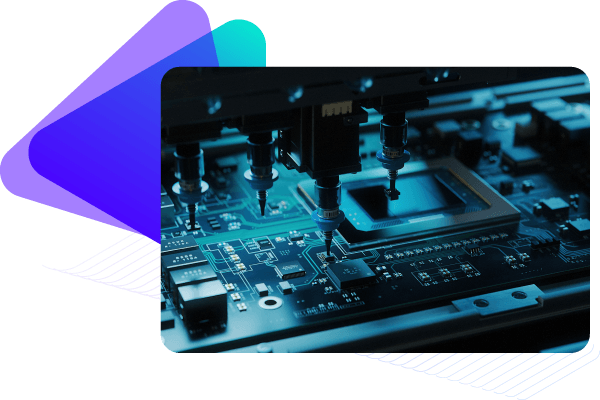Centralized Embedded System & SoC Design
Perforce helps businesses ensure quality and compliance while accelerating the design and development of the most complex products and systems, by enabling secure collaboration and consistent methodologies across globally distributed, cross-functional teams with full traceability.
Bring Complex Products and Systems to Life Faster
Streamline the design and development of embedded systems and SoCs with a centralized system that improves visibility and collaboration and enables consistent, quality-based workflows.
Tame Design Complexity
Achieve end-to-end traceability and streamline design efforts with seamless cross-team coordination.
Automate Quality and Security
Save time and resources by meeting industry compliance standards and delivering secure, quality code.
Streamline IP & Design Data Management
Protect and reuse valuable IP, reduce design errors, and scale to support globally distributed teams.
Scale High-Quality Design Securely & Globally
Transform your development with high-performance design data management for complex semiconductor and embedded systems design.
- Easily manage the millions of files that are common in EDA tools with endless scalability.
- Scale infrastructure to support globally distributed teams with a powerful caching and replication architecture that is unmatched in the industry.
- Protect and reuse your most valuable data and intellectual property while ensuring security down to the file level.

Tame design complexity with an IP management and collaboration platform that tracks IP and its metadata across projects for end-to-end traceability.
- Streamline design efforts with seamless coordination across teams and projects.
- Achieve end-to-end traceability to ensure regulatory compliance and gain visibility into the cross-project impact of known issues.
- Find and reuse IP more effectively to reduce rework and accelerate design.

Access the benefits of design data and configuration management within your existing analog design environment.
- Eliminate versioning issues and reduce design errors by easily identifying and communicating changes.
- Bring higher quality products to market more quickly by enabling effective design block reuse.
- Quickly bootstrap new projects by streamlining configuration and workspace management.

Ensure secure, safe, reliable, maintainable, high-quality code with automated quality and reliability issue detection for embedded systems written in C, C++, C#, Java, JavaScript, Python, and Kotlin programming languages.
- Boast high accuracy and precision to find more problems with fewer false positives.
- Achieve high code quality with metrics such as cyclomatic complexity.
- Find, fix, and resolve issues before the code review phase.

Ensure compliance to rigorous coding, industry, functional safety, and security standards and guidelines with certified solutions that make it easy.
- Monitor, manage, report, and track project technical debt and compliance gaps across the enterprise.
- Customize to your own internal standards.
- Enforce safety, security, and quality coding standards across your codebase.

Automate security testing for DevSecOps teams by integrating with CI/CD tools, containers, cloud services, and machine provisioning, and ensure compliance to standards such as CWE, OWASP, CERT, PCI DSS, DISA STIG, and ISO/IEC TS 17961.
- Detect security vulnerabilities including SQL Injection, Tainted Data, Buffer Overflow, and Vulnerable Coding Practices.
- Detect bugs and quality issues such as null pointer deferences/exceptions, memory/resource leaks, and uncaught exceptions.
- Find and fix security issues early in the software development lifecycle, saving time and resources.

Proven Performance
Perforce helped Raytheon analyze 70,000 lines of code in under an hour — a task that previously took one week.
90%
Of the top IC design companies trust Perforce semiconductor solutions.
Automotive Parts Manufacturers
The Top 10
Rely on Perforce for code security and compliance.
"[Perforce QAC] is accurate and it finds issues that other tools have missed."
- Huw Jones, Senior Software Test Engineer at Protean Electric
Outperformers Prevail With Perforce
Perforce delivers a DevOps Edge to the world’s outperformers, empowering them to build, manage, and maintain high-stakes applications — from code to business-ready.
View Customer Stories




Get the Power of Perforce Today
Embrace complexity, achieve speed without compromise, improve security and compliance, and run your DevOps toolchains with full integrity.
